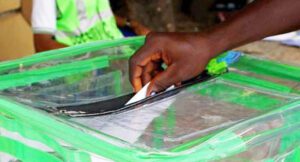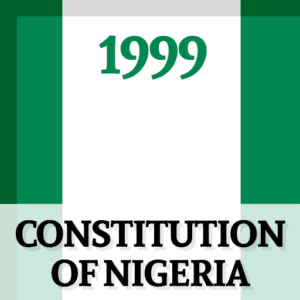Framing accountability structures in the Oil & Gas sector for optimal accruals
It would now appear that every deficit in expectations from any sector in Nigeria would quickly be rounded up to the act of corruption. This is because the profile of corruption itself has become an household name, particularly for the public sector, such that trust in government has almost been lost. The grip of corruption has been known with the public sector and, as have been observed, the most strangulating string frustrating growth in sectors of the Country, while impacting forces reducing the Country to struggles for breathe.
For all sectors in the Country, the effects of the scourge of corruption cannot exclude the tardy growth, or better still, the struggles for breathe for some. The fights to sanitise certain critical sectors have not been reflecting the ray of fortune, as such fights have remained either frustrated, or as it has been pronounced, lacking the instruments, strategies, structures and political will to drive same. Hence, deficiencies from the public sphere of the working architecture of every sector, have seen even the infectious dimensions finding expression on the private side of the system. Hence, the reflections of the imprint of corruption have been seen forming deformities against growth and at the macro end, strings of stress, debilitating to the economy.
While all sectors have been affected by these syndrome, the place of the oil & gas sector which remains the honey-pot of the Country has been savoury. Expectations would have been that such sector which over-time has been the mainstay of the economy, would have been fortified with structures effecting sanity to expunge the working fabrics from iota of possibilities of ill practices to get the maximum output accruable.
However, it has remained that the profile of corruption in the sector have stayed at the height of heavyweight. From the upstream to the downstream, accounts of corruption crafted through the operations of several devices have continued to take course with reflections of structural deficiencies, which in their deformities have left much gaps, permitting the feasting fingers of inclinations of corruption to have the day. Even in the records of parastatals and agencies of the government bearing portfolio of operations in the sector, the echoes of corruption have remained mind blowing. Hence, the profiling of Nigeria’s oil and gas sector has been coloured with frailties in the working fabrics of the sector.
Reactions and reservations greeted issues surrounding the government managed refineries recently, as it was disclosed the government spent N10.23 billion in June 2020 on three refineries that processed zero crude. Also in 2021, the government reportedly approved $1.5 billion (about N600 billion) to repair the Port Harcourt refinery. Irreconcilable to the huge funds, the refineries are largely still comatose, as scarcity of refined products have not left the stage with its harshness. Disturbed by the irreconcilable differences between funds allocated for same and their ineffective productivity, the Socio-Economic Rights and Accountability Project (SERAP) had recently filed a lawsuit against President Muhammadu Buhari over what it held as “his failure to probe allegations that over N1.48 trillion reportedly spent on maintaining the country’s four refineries between 2015 and 2020 may have been stolen, mismanaged or diverted into private pockets.” In the suit number FHC/L/CS/806/2022 filed in May, at the Federal High Court, Lagos, SERAP is seeking “an order of mandamus to direct andcompel President Buhari to investigate the spending on Nigeria’s refineries, and alleged mismanagement of public funds budgeted for maintaining the refineries since 1999.”
SERAP is also seeking “an order of mandamus to compel President Buhari to ensure the prosecution of anyone suspected to be responsible for the importation and distribution of dirty fuel into Nigeria, and to identify and ensure access to justice and effective remedies to affected victims.” SERAP in the suit argued that, “It is in the public interest to ensure justice and accountability for allegedcorruption and mismanagement in the oil sector, which has resulted in the importation and distribution of dirty fuel and protracted fuel scarcity in the country.” In the suit which joined Mr Abubakar Malami, SAN, Attorney General of the Federation and Minister of Justice as Respondent, SERAP is also seeking “an order of mandamus to direct and compel President Buhari to instruct appropriate anti-corruption agencies to jointly track and monitor the spending of public funds to rehabilitate, operate, and maintain Nigeria’s refineries.”
“Nigerian Constitution 1999 [as amended], and international standards impose clear obligations on the Buhari administration to take effective accountability measures to weed out, expose, and punish allegations of corruption in the oil sector, and to ensure effective remedies for victims.
“Ensuring justice and accountability in the spending of public funds on refineries would improve the availability of petrol and the enjoyment by Nigerians of their right to natural wealth and resources. Impunity for alleged corruption in the oil sector has contributed to the importation and distribution of bad fuel, violatingthe human rights of many users, including to a safe, clean, healthy and sustainable environment. The Buhari administration has legal obligations under Section 15(5) of the Nigerian Constitution to abolish all corrupt practices and abuse of power, and article 26 of the UN Convention against Corruption to ensure effective prosecution of allegations of corruption.
“Alleged corruption and mismanagement in the oil sector and the importation and distribution of dirty fuel have continued to deprive Nigerians of economic opportunities, subjecting them to cruel and degrading treatment,” SERAP argued.
The suit filed on behalf of SERAP by its lawyers Kolawole Oluwadare and Ms Adelanke Aremo, read in part, “Nigeria has made legally binding commitments under the UN Convention against Corruption to ensure accountability in the management of public resources. These commitments ought to be fully upheld and respected. Directing and compelling President Buhari to probe allegations of corruption and mismanagement of the money meant to repair the country’s refineries would advance the rights of victims of corruption to restitution, compensation and guarantee of non-repetition. Combating the corruption epidemic in the oil sector would alleviate poverty, improve access of Nigerians to basic public goods and services, and enhance the ability of the government to meet its human rights and anti-corruption obligations.
“Despite the country’s enormous oil wealth, ordinary Nigerians have derived very little benefit from their own natural wealth and resources, primarily because of widespread grand corruption, and the impunity of perpetrators.
High-ranking public officials, including officers of the Nigerian National Petroleum Company Limited suspected of complicity in the allegations of corruption and mismanagement in the oil sector, and the importation and distribution of adulterated fuel have continued to enjoy impunity. Under Section 16(1) of the Constitution, the government has a responsibility to ‘secure the maximum welfare, freedom and happiness of every citizen on the basis of social justice and equality of status and opportunity.’ Section 16(2) further provides that, ‘the material resources of the nation are harnessed and distributed as best as possible to serve the common good.’
“Under article 24 of the African Charter on Human and Peoples’ Rights, Nigerians have the ‘right to a general satisfactory environment favourable to their development.’ According to reports, petroleum products with methanol quantities above Nigeria’s specification were recently imported into the country. The Nigerian National Petroleum Corporation (NNPC) reportedly stated that the methanol-blended petrol was imported into the country by a few suppliers through four premium motor spirit cargoes under its Direct Sales Direct Purchase (DSDP) arrangement. According to reports, for every 200 litres of the adulterated product, 800 litres of petrol with good quality would be required for the blending to be done. According to reports, the government spends over N264 billion annually to operate and maintain the country’s refineries.
“Successive governments have reportedly spent trillions of Naira to rehabilitate, operate and maintain the refineries that have produced little or no fuel. The government reportedly spent $396 million for maintenance of the country’s refineries between 2015 and 2020 alone. Despite this huge spending, millions of Nigerians continue to lack access to full and unhindered supply of fuel.
About N82.82 billion was reportedly spent in 2015, N78.95 billion in 2016; N604.127 billion in 2017, N426.66 billion in 2019; N218.18 billion in 2019, and N64.534 billion expenditure was recorded from January to June 2020.”
The architecture deficits have only left sour narratives for the Country’s reserves with frowning reflections, not only on the profile of foreign exchange, but at large, the economy has been challenged by crude exportation and subsequent importation. The economy has been challenged and short changed. The impacts have been felt by Nigerians, who against enjoying the abundance of homeland blessedness of oil resources, have begun to pay out of their nose, with the economy dealing hard blows on many.
It is apparent the refineries are comatose despite the huge sum pumped into them for maintenance, and same cannot be disconnected from corruption, just as the gross underperformance of the sector cannot be argued not to be largely a function of feasting fingers of corruption. It has now become a necessity to change the narratives by reconditioning the working fabrics of the sector for optimal benefits which it ought to accrue unto the coffers of the nation and by extension, it’s reflections in growth and development of the economy for the good of the greatest number. In this case, fighting devices of corruption leaving the sector with the profile of deficiencies is pertinent. This is important to eliminate forces of disturbances limiting the sector from optimal productivity. The case of the deficits of the huge sum of N10.23 billion released in June 2020 on three refineries that processed zero crude and in 2021, the approval of $1.5 billion (about N600 billion) to repair the Port Harcourt refinery which impact has not been felt, and explanation has not been given for same, is one that demands inquiry. Such inquiry should provide Nigerians with vivid explanation giving details for the spendings and clear financial report to justify same.
The role of antigraft agencies and other relevant structures bearing portfolio to see to the demands of accountability in the architecture of government is very paramount. The role of the National Assembly bears a force that must not be swerved from. President Muhammadu Buhari has the portfolio as a supervising Minister for the oil and gas sector, and hence has a critical role to play to call for explanations. Such remains important as a signalling step to set the path unto sanitising the sector.




